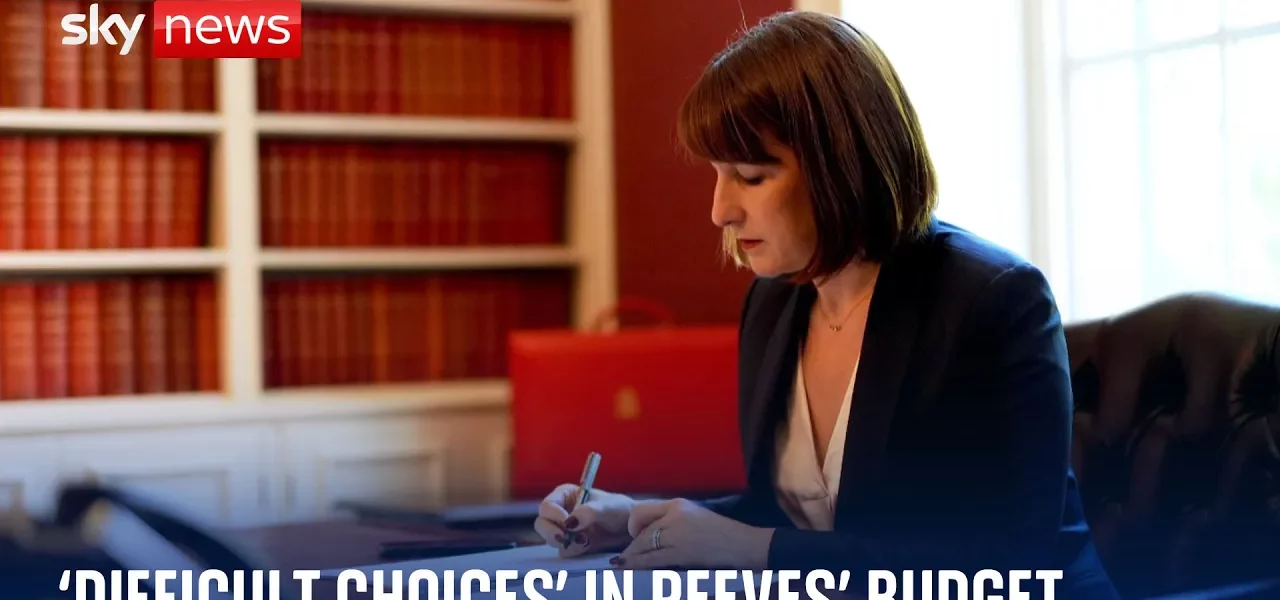The Upcoming UK Budget: A Focus on NHS Funding and Fiscal Challenges

This article provides a comprehensive overview of the anticipated UK budget, examining the implications for NHS funding, the pressing fiscal challenges, and the long-term economic strategies that must be implemented.
Introduction
The upcoming UK budget has generated significant attention as it promises to address various pressing issues, particularly concerning the National Health Service (NHS). With a history of budgetary constraints and public scrutiny, the government’s approach to this year’s budget is critical. Stakeholders are particularly interested in how funding will be allocated to the NHS amidst reports of a substantial fiscal shortfall, estimated at around £40 billion. This article delves into the complexities of the budget, the importance of NHS funding, and the potential long-term ramifications for the UK economy.
The NHS as a Budget Winner
Recent discussions have suggested that the NHS could emerge as a significant beneficiary in the upcoming budget. The government has acknowledged the mounting pressures on the health service, which has seen unprecedented demand for its services, particularly in Accident & Emergency (A&E) departments. With over a million staff members dedicated to meeting the healthcare needs of the population, the challenge lies in ensuring that these resources are adequately funded and managed.
Investment vs. Reform
While investment in the NHS is essential, it is equally important to focus on reform. The Chancellor has indicated that any financial support will be tied to necessary reforms within the NHS, aiming to enhance efficiency and service delivery. This dual focus on immediate funding and long-term reform is vital for the stability of the healthcare system.
Addressing the Fiscal Black Hole
One of the most pressing concerns surrounding the budget is the so-called £40 billion black hole. This figure represents the shortfall that the government must address to maintain fiscal stability and continue funding essential services.
Understanding the Figures
There are various figures floating around regarding the fiscal shortfall. Key considerations include:
- In-year spending pressures: estimated at £22 billion.
- Long-term fiscal rules: the government’s current approach to managing spending and investment.
- Projected outlays at the end of the decade which will heavily influence future policy decisions.
The Squeeze on Day-to-Day Spending
The tension between maintaining day-to-day spending and pursuing borrowing for investment is palpable. As the Chancellor prepares for what may be one of the most consequential budgets in a decade, balancing fiscal responsibility with the need for growth will be a central theme.
The Role of NHS Staff and Unions
Engaging NHS staff and unions in the reform process is critical. Recent settlements with junior doctors, including pay review recommendations, have set a precedent for future negotiations. However, ongoing issues with General Practitioners (GPs) highlight the complexities of achieving consensus among a diverse workforce.
Challenges Ahead
Despite the positive steps taken, challenges remain:
- Ongoing dissatisfaction among GP practices.
- The need for consistent pay and working conditions across the NHS.
- Ensuring that reforms do not undermine the quality of care provided to patients.
Public Sentiment and Support for NHS Funding
Public opinion is a significant factor in shaping budget decisions. Many citizens express a willingness to pay higher taxes for improved healthcare services. This sentiment reflects a broader understanding of the necessity of adequate funding for the NHS to prevent a collapse of services.
The Importance of Public Trust
Building and maintaining public trust in the government’s capacity to manage NHS funding effectively is crucial. Transparency in budget allocations and ongoing communication about the challenges faced by the NHS will foster this trust. Public support can also influence political decisions and priorities in future budgets.
Conclusion
The upcoming UK budget represents a pivotal moment for the government, the NHS, and the public. As discussions continue around funding, fiscal challenges, and the necessity for reform, it is essential for stakeholders to remain engaged and informed. The decisions made in this budget will have lasting implications for the UK’s healthcare system and economic strategy. As we approach the budget announcement, it is critical for citizens to advocate for the necessary changes that will ensure the sustainability and effectiveness of the NHS.
For more insights on economic strategies and healthcare reforms, check out our related articles on NHS Reform Strategies and Fiscal Responsibility in Government Spending.
“`




